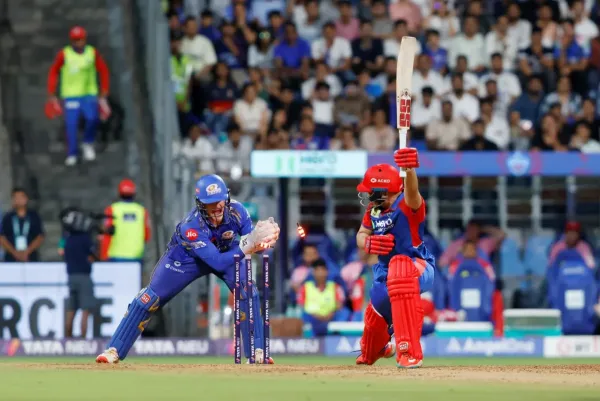The Karnataka Stamps and Registration Department has issued a directive mandating all sub-registrars in the state to collect a Specified Financial Transaction (SSFT) statement from individuals involved in property transactions exceeding Rs 30 lakh during document registration, Times of India (Times of India) reported.
Under Section 285BA(1) of the Income Tax Act, 1961, it is obligatory to submit SSFT details to the Income Tax Department. The trigger for the circular, sources say, is that the I-T department had raised concerns about "several" sub-registrars failing to provide these statements, ToI said.
As per ToI, the circular, issued by KA Dayananda, Inspector General of Registration and Commissioner of Stamps, requires sub-registrars to gather specific information, including PAN card details, addresses of both buyers and sellers, registration date, transaction value, property specifications, payment method, Aadhaar details, Form 60 receipt, birth date, contact information, and email. Both parties must verify and sign these details, and the SSFT form must be scanned alongside other property transaction documents.
To enforce compliance, sub-registrars have been instructed to withhold registration documents until the SSFT details are collected, ToI said.
Accountability measures are in place for any procedural oversights. While sub-registrars have been submitting SSFT details regularly, the circular reinforces the importance of this practice. A senior official told TOI that due to heavy workloads, some sub-registrars have occasionally failed to provide these details, leading to disciplinary action. With the new directive, parties involved in property transactions will not be able to collect registered documents if they fail to provide the SSFT.
Sub-registrars have recommended that authorities incorporate SSFT submission into the Kaveri-2.0 program, which allows parties to upload registration paperwork. According to a sub-registrar, manual SSFT collecting increases workload. Enabling self-declared SSFT uploads using Kaveri-2.0 should streamline the procedure for both the department and I-T authorities, ToI reported
As per the Income Tax Act, the purchase or sale of any immovable property by an individual must be reported if the transaction value is Rs 10 lakh or more, or if the property is valued at Rs 30 lakh or more by the stamp valuation authority under Section 50C of the Act. The responsibility of reporting such transactions lies with the Inspector-General, Registrar, or Sub-Registrar appointed under the Registration Act, 1908. These designated authorities are required to furnish details of such high-value property transactions to the Income Tax Department to ensure compliance and enhance financial transparency.
Persons required to file statement of financial transaction or reportable account
Following persons shall be required to furnish statement of financial transactions or reportable accounts registered or recorded or maintained by them during a financial year to the prescribed authority:
(a) an assessee;
(b) the prescribed person in the case of an office of Government;
(c) a local authority or other public body or association;
(d) the Registrar or Sub-Registrar appointed under section 6 of the Registration Act, 1908
(16 of 1908);
(e) the registering authority empowered to register motor vehicles under Chapter IV of the
Motor Vehicles Act, 1988 (59 of 1988);
(f) the Post Master General as referred to in clause (j) of section 2 of the Indian Post Office
Act, 1898 (6 of 1898);
(g) the Collector referred to in clause (g) of section 3 of the Right to Fair Compensation and
Transparency in Land Acquisition, Rehabilitation and Resettlement Act, 2013 (30 of
2013);
(h) the recognised stock exchange referred to in clause (f) of section 2 of the Securities
Contracts (Regulation) Act, 1956 (42 of 1956);
(i) an officer of the Reserve Bank of India, constituted under section 3 of the Reserve Bank
of India Act, 1934 (2 of 1934);
(j) a depository referred to in clause (e) of sub-section (1) of section 2 of the Depositories
Act, 1996 (22 of 1996); or
(k) a prescribed reporting financial institutions
(l) a person, other than those referred to in clause (a) to (k), as may be prescribed.
Under Section 285BA(1) of the Income Tax Act, 1961, it is obligatory to submit SSFT details to the Income Tax Department. The trigger for the circular, sources say, is that the I-T department had raised concerns about "several" sub-registrars failing to provide these statements, ToI said.
As per ToI, the circular, issued by KA Dayananda, Inspector General of Registration and Commissioner of Stamps, requires sub-registrars to gather specific information, including PAN card details, addresses of both buyers and sellers, registration date, transaction value, property specifications, payment method, Aadhaar details, Form 60 receipt, birth date, contact information, and email. Both parties must verify and sign these details, and the SSFT form must be scanned alongside other property transaction documents.
To enforce compliance, sub-registrars have been instructed to withhold registration documents until the SSFT details are collected, ToI said.
Accountability measures are in place for any procedural oversights. While sub-registrars have been submitting SSFT details regularly, the circular reinforces the importance of this practice. A senior official told TOI that due to heavy workloads, some sub-registrars have occasionally failed to provide these details, leading to disciplinary action. With the new directive, parties involved in property transactions will not be able to collect registered documents if they fail to provide the SSFT.
Sub-registrars have recommended that authorities incorporate SSFT submission into the Kaveri-2.0 program, which allows parties to upload registration paperwork. According to a sub-registrar, manual SSFT collecting increases workload. Enabling self-declared SSFT uploads using Kaveri-2.0 should streamline the procedure for both the department and I-T authorities, ToI reported
As per the Income Tax Act, the purchase or sale of any immovable property by an individual must be reported if the transaction value is Rs 10 lakh or more, or if the property is valued at Rs 30 lakh or more by the stamp valuation authority under Section 50C of the Act. The responsibility of reporting such transactions lies with the Inspector-General, Registrar, or Sub-Registrar appointed under the Registration Act, 1908. These designated authorities are required to furnish details of such high-value property transactions to the Income Tax Department to ensure compliance and enhance financial transparency.
Persons required to file statement of financial transaction or reportable account
Following persons shall be required to furnish statement of financial transactions or reportable accounts registered or recorded or maintained by them during a financial year to the prescribed authority:
(a) an assessee;
(b) the prescribed person in the case of an office of Government;
(c) a local authority or other public body or association;
(d) the Registrar or Sub-Registrar appointed under section 6 of the Registration Act, 1908
(16 of 1908);
(e) the registering authority empowered to register motor vehicles under Chapter IV of the
Motor Vehicles Act, 1988 (59 of 1988);
(f) the Post Master General as referred to in clause (j) of section 2 of the Indian Post Office
Act, 1898 (6 of 1898);
(g) the Collector referred to in clause (g) of section 3 of the Right to Fair Compensation and
Transparency in Land Acquisition, Rehabilitation and Resettlement Act, 2013 (30 of
2013);
(h) the recognised stock exchange referred to in clause (f) of section 2 of the Securities
Contracts (Regulation) Act, 1956 (42 of 1956);
(i) an officer of the Reserve Bank of India, constituted under section 3 of the Reserve Bank
of India Act, 1934 (2 of 1934);
(j) a depository referred to in clause (e) of sub-section (1) of section 2 of the Depositories
Act, 1996 (22 of 1996); or
(k) a prescribed reporting financial institutions
(l) a person, other than those referred to in clause (a) to (k), as may be prescribed.








